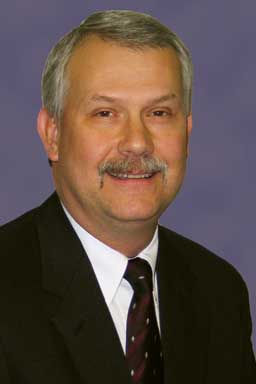From the Executive Director: When preparation meets opportunity
There were 127 veterinary students in attendance at this year’s annual meeting in Omaha. I had the opportunity to meet several outstanding young women and men who are just beginning their careers in veterinary medicine. I am certain that some of those I met will someday be leaders of the AASV. One of the great benefits of being in my job over the years is watching these young people mature and grow into leadership roles. I am always heartened with the knowledge that the AASV will be in good hands for years to come.
Over the last few months, I have been asked the same question several times by different people: “How many newly graduated veterinarians do we need for the swine industry?” My answer has consistently been “I don’t know!” I am sorry to disappoint you, but I have neither crystal ball nor any brilliant insight. I don’t believe a great deal of our time and resources should be directed towards trying to predict some magic number for the number of new graduates we need for each species every year. There are so many variables that come into play each year that predictions such as this are set up to fail. These variables range from industry conditions to the personal and professional choices of the new graduates.
Despite not knowing the specific number, I am, however, confident in saying we will always need swine veterinarians. We must continue to educate and prepare veterinary students for careers in swine veterinary medicine. If we don’t to do this because we are uncertain how many we will need in a given year, then we are going to fail our students, new graduates, the industry, and ultimately the pigs.
The Roman philosopher Seneca is quoted with the saying “Luck is when preparation meets opportunity.” Like Seneca, I don’t place a lot of faith in luck. Preparation is the key needed by new graduates to open doors into careers as swine veterinarians. Over the years, the AASV and the AASV Foundation have placed an emphasis on attracting and preparing veterinary students to embrace swine health and production as a focus for practice. By placing resources into this priority, we operate under the continuing belief that there will always be a place for a well-prepared and committed new graduate in the swine industry.
The role of the AASV and its members does not end with preparation. If we assume the responsibility for preparation, then we must also seriously consider the responsibility for creating and sustaining opportunities for new graduates. Recruitment, placement, and retention of the best and brightest new graduates are essential for the entire pork chain as well as the fundamental health and welfare needs of the pigs within our care. Entry into swine practice is contingent on preparation and being offered an opportunity to succeed. One without the other is only going to lead to disappointment and failed expectations.
A number of factors may very well increase the need for swine veterinarians in the future. There are two examples of issues in which veterinarians can play a major role. Animal welfare on the farm has been gaining the attention of many in the pork chain, including packers, retailers, and consumers. The second issue is the perceived need for increased veterinarian oversight of the use of antimicrobials in food-producing animals. This is a key issue for certain governmental agencies and perhaps even Congress. The expertise and assurances offered by veterinarians in both of these issues may drive a greater need for new graduates in the future. The AASV has been active on these and other issues to ensure that the best interests of veterinarians will be served.
One of our goals as swine veterinarians and as an association should be to leave our respective realms of influence better than when we arrived. One of the ways we can do that is to provide a steady supply of well-prepared veterinarians who are ready to take advantage of the opportunities presented in swine health and production by our profession and the industry in which we work. To do otherwise will be a shameful waste of the preparation and opportunities that have been made available to us.
–Tom Burkgren, DVM
